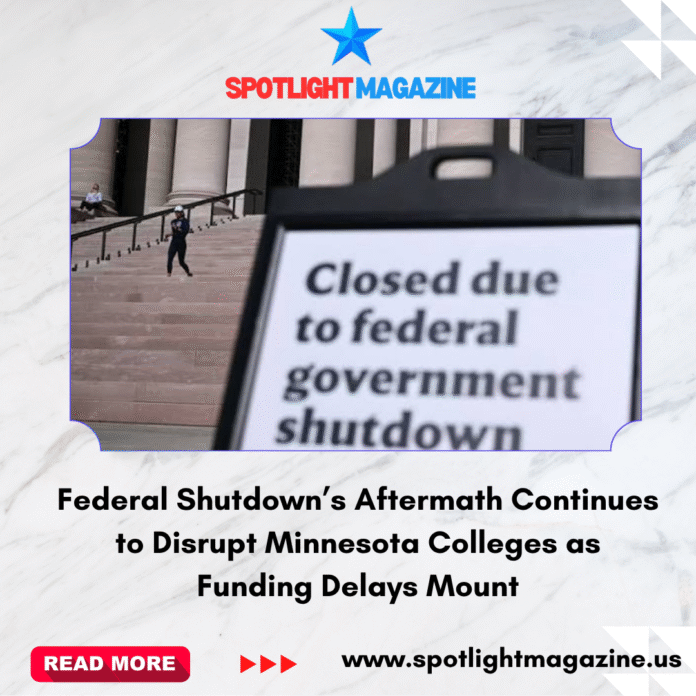Even though the federal government has resumed operations, colleges and universities across Minnesota continue to grapple with the lasting consequences of what became the longest government shutdown in U.S. history. While agency doors have reopened, the disruption caused by weeks of halted federal activity is still unfolding on campuses—especially in the areas of research funding, financial aid processing, and long-term program stability.
Higher education officials report that many institutions are only now beginning to grasp the full scope of the financial and operational setbacks. Delayed federal grants, uncertainty about multi-year funding streams, and abrupt program interruptions have left administrators and faculty scrambling to assess the damage. Students, too, are feeling the effects, facing postponed research work, shifting academic timelines, and gaps in services that rely on federal dollars.
These concerns were brought directly to lawmakers during a task force hearing in St. Paul on Thursday, Nov. 13. Augsburg University President Paul Pribbenow spoke candidly about the challenges his institution has been confronting since the shutdown began. He emphasized that although Augsburg is not among the state’s largest research universities, the campus community has nonetheless been significantly affected.
“As difficult as these funding losses have been for our students, faculty and staff—and our experience certainly pales in comparison to other larger research institutions—they nonetheless have added to an atmosphere of fear and anxiety for our community,” Pribbenow told legislators.
According to Pribbenow, the university has already experienced delays in the distribution of grants that support everything from student scholarships to community-based programs. In addition, uncertainty around federal agencies’ long-term budgets leaves Augsburg unsure how to plan for upcoming academic cycles. This ambiguity has created additional administrative burdens as departments try to adjust staffing and programming without clear guidance.
The shutdown’s impact extends well beyond Augsburg. A researcher from the University of Minnesota testified that the state’s flagship university has been hit even harder. More than 100 research awards funded by federal agencies have been either suspended or terminated outright, an unprecedented disruption for one of the nation’s most research-intensive public institutions.
These awards typically support a wide array of scientific and scholarly work—everything from medical research and engineering projects to climate studies and agricultural innovation. Losing or pausing this funding not only slows progress on major research initiatives but also jeopardizes the jobs of graduate students, postdoctoral researchers, and staff whose positions depend on federal grants.
Faculty members have reported significant confusion and frustration as they attempt to determine which projects can continue, which must pause, and which may never restart. Some labs have been forced to freeze experiments mid-stream, risking the loss of months—sometimes years—of carefully collected data. Others are struggling to sustain equipment, maintain regulatory compliance, or meet contractual deadlines without the financial support they were originally promised.
The uncertainty is also rippling into future planning. Many researchers are questioning whether they should apply for upcoming federal grants, unsure if agencies will be able to issue awards on a predictable schedule. This hesitation could lead to long-term setbacks, particularly in disciplines that rely heavily on federal investments.
Back on college and university campuses statewide, administrators are bracing for the possibility that similar disruptions could reoccur if the federal budget process remains unstable. Even as the government has reopened, schools are still reckoning with halted cash flow, backlogged paperwork, and lingering doubt about future funding cycles.
While the immediate crisis of the shutdown has ended, its consequences continue to shape the day-to-day reality of Minnesota’s higher education system. Leaders warn that without more reliable federal support, the state’s students, researchers, and academic institutions may face ongoing challenges that could hinder innovation, economic growth, and educational opportunity for years to come.


